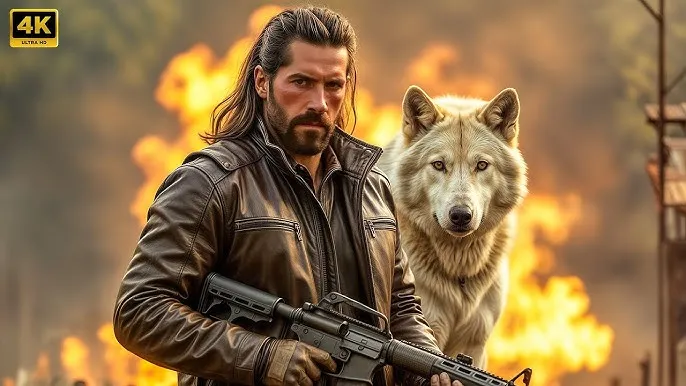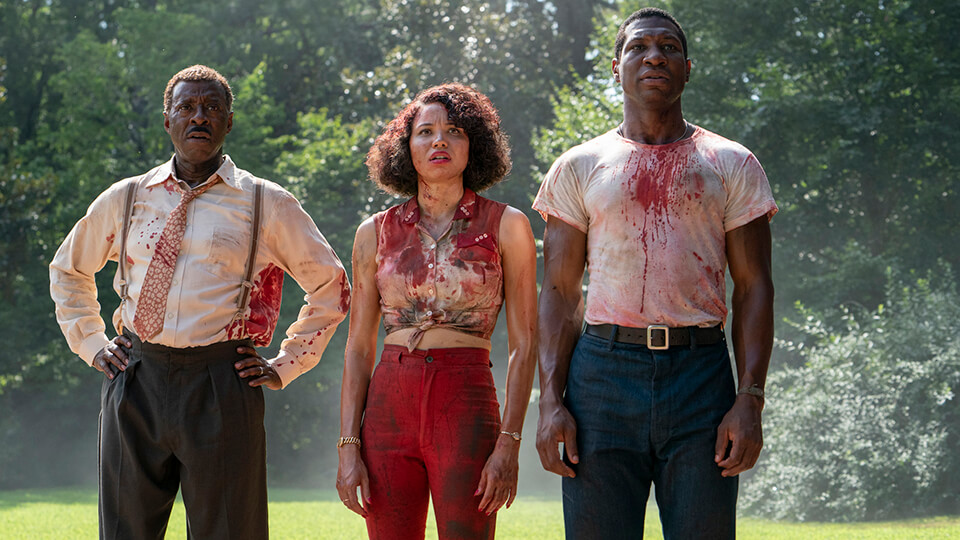Twenty-four years after Michael Bay’s emotionally charged Pearl Harbor captured the heartbreak and heroism of one of America’s darkest days, Pearl Harbor 2: Retribution (2025) boldly reignites the fire of wartime drama. Directed by Joseph Kosinski (Top Gun: Maverick), this long-awaited sequel blends visceral action, historical fiction, and an emotionally layered story of loss, revenge, and redemption. Set against the raging tides of World War II's Pacific Theater, Retribution explores the aftermath of the infamous attack through the eyes of a new generation—while still echoing the scars left behind.
The film opens in 1944, three years after the attack on Pearl Harbor. Danny Walker’s son, Lieutenant James "Jimmy" Walker (portrayed with magnetic intensity by Glen Powell), is now a skilled Navy fighter pilot haunted by the legacy of his fallen father. Raised by Evelyn (Kate Beckinsale reprising her role in a cameo), Jimmy carries the weight of history on his shoulders. He’s young, courageous, and hungry for justice.
The U.S. military intelligence intercepts a chilling message: the remnants of the Imperial Japanese fleet are planning a devastating assault on a covert Allied weapons facility in the Mariana Islands. Jimmy is deployed as part of Operation Retribution, a top-secret mission aimed at taking the fight directly to the enemy. His wingman? Lieutenant Haruto Sato (Mackenyu), a Japanese-American pilot fighting to clear his family’s name, wrongly imprisoned in internment camps back home. Their complex relationship becomes the emotional core of the story.
At its heart, Pearl Harbor 2: Retribution is not merely a war film—it’s a character-driven exploration of legacy and identity. Jimmy’s internal war is as turbulent as the one he fights in the sky. Through his bond with Haruto, the film bridges cultural divides and exposes the moral ambiguity of vengeance.
Haruto’s subplot, deeply moving, shines a light on Japanese-American soldiers who served bravely despite the discrimination they faced. His conflict—fighting for a country that doesn’t fully accept him—adds a sobering modern relevance to the story. Kosinski handles these layers with grace, allowing the film to transcend the conventions of typical action war movies.
Where Pearl Harbor focused heavily on romantic drama, Retribution balances emotion with cutting-edge action. The aerial dogfights are breathtaking, shot with IMAX clarity and real fighter plane choreography. Kosinski—known for his knack with flight sequences—delivers some of the most intense combat visuals seen since Dunkirk or Top Gun: Maverick.
One standout scene features Jimmy and Haruto flying into a storm-enshrouded Japanese airbase, using lightning flashes as cover—a pulse-pounding sequence that feels both beautiful and terrifying. Every explosion, engine roar, and bullet whizz has weight, and the sound design immerses you in the chaos of war without glorifying it.
Unlike its predecessor, which leaned heavily into romantic melodrama, Retribution approaches love with maturity and restraint. Jimmy develops a quiet relationship with Lieutenant Nora McAllister (Zoey Deutch), a cryptographer whose brilliance helps decode the enemy's plan. Their bond is built slowly, through shared grief and mutual respect, rather than sweeping declarations.
It’s a smart choice. Nora isn’t just a love interest—she’s vital to the mission’s success. Her strength and vulnerability give the film a grounded emotional texture that feels more authentic than the romantic triangles of the past.
Claudio Miranda’s cinematography captures both the grandeur and desolation of war. From warships cutting through moonlit waters to burning skies over Pacific islands, every frame evokes the scale of the conflict. Hans Zimmer returns to score the film with a hauntingly heroic theme that blends somber strings with swelling brass, reinforcing both the film’s scale and its intimate moments of humanity.
Historical liberties are taken, to be sure, but the film is careful not to rewrite the war—it reframes it through fictional personal stories. Period-accurate costumes, aircraft, and naval sets lend a tangible realism, immersing viewers in the world of the 1940s.
Pearl Harbor 2: Retribution is a bold swing—a sequel to a film often remembered more for its romance than its war narrative. And yet, it largely succeeds. It doesn’t try to mimic the original’s structure; instead, it carves its own identity as a mature, emotionally resonant war film. Critics have noted its balance of spectacle and sentiment, praising it as a spiritual successor to Saving Private Ryan and 1917.
Glen Powell emerges as a genuine leading man, delivering a performance that captures both strength and vulnerability. Mackenyu offers a breakout role, bringing a quiet intensity and depth that grounds the film’s moral core. And Kate Beckinsale’s brief appearance as an older Evelyn adds a heartfelt continuity that longtime fans will appreciate.
Rating: ★★★★☆ (4.5/5)
Pearl Harbor 2: Retribution is a powerful, beautifully shot epic that honors the emotional stakes of its predecessor while delivering thrilling new storytelling. It weaves action, legacy, and healing into a wartime drama that feels surprisingly personal. With its stellar cast, unforgettable action, and emotional resonance, this is a sequel that not only justifies its existence—it redefines it.
Whether you come for the historical spectacle, the high-flying dogfights, or the deeper themes of forgiveness and purpose, Retribution lands with explosive impact and unexpected heart.




